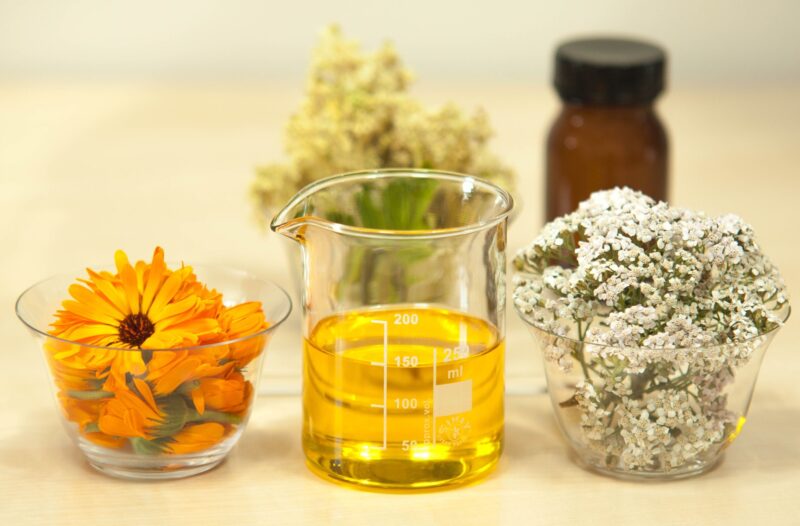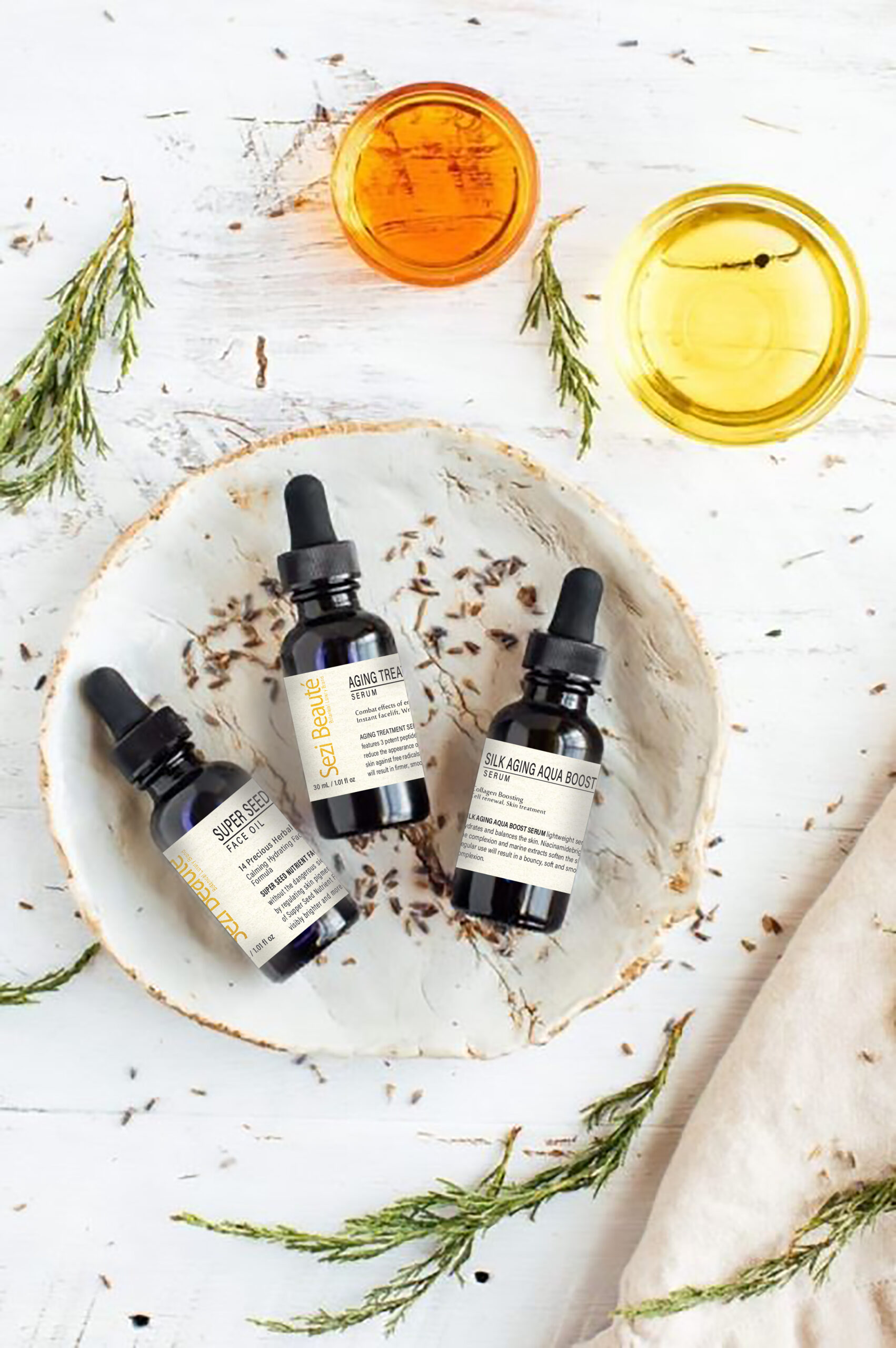What is jojoba oil?
The jojoba plant is a hearty, perennial plant that grows in North America.
Not only does it thrive in the harsh, desert climates that could kill most living things, but it also produces a nut with many healing properties.
The nut of the jojoba plant can be made into an oil. Jojoba oil is gentle enough to be used as a carrier oil to mix with other essential oils. You can also use it on its own.
Many people use jojoba oil as part of their skin care routine. And there are good reasons for that. There’s plenty of evidence supporting the use of pure jojoba oil as a remedy for acne, dry skin, and countless other skin conditions.
Keep reading to find out more about the benefits of using jojoba oil for your skin.
1. It’s moisturizing
Jojoba oil is a humectant ingredientTrusted Source.
This means that it works to seal your skin with a protective barrier to keep it from losing moisture.
This may help prevent bacterial infections, acne, and dandruff from forming.
2. It’s antibacterial
Jojoba oil contains antimicrobial and antifungal properties.
While lab testsTrusted Source found that jojoba oil doesn’t kill all bacterial or fungal species, it does kill certain bacteria and fungi that can cause salmonella, an E. coli infection, and candida.
3. It’s an antioxidant
Jojoba oil contains natural forms of vitamin E. This vitamin works with your skinTrusted Source as an antioxidant. This means that jojoba oil can help your skin fight oxidative stress caused by everyday exposure to pollutants and other toxins.
4. It’s noncomedogenic
Although jojoba oil is a botanical substance, its makeup is so similar to the oil (sebum) your body naturally produces that your skin can’t tell the difference.
This makes it less likely to build up on your skin and clog your pores, leading to fewer breakouts and less severe acne.
5. It’s hypoallergenic
On a molecular level, jojoba oil is a wax. Although it can be absorbed into your skin, its waxy nature allows it to create a soothing seal on the surface.
Unlike other botanical essential oils, jojoba oil is typically nonirritating. Allergic reaction is rare.
6. It helps control sebum production
Jojoba oil regulates sebum production because it’s so similarTrusted Source to the sebum that your body produces naturally.
When you put jojoba oil on your skin, your skin is soothed and moisturized.
This sends a signal to your hair and sweat follicles that your skin doesn’t need additional sebum for hydration.
This keeps skin from looking oily and helps prevent acne caused by clogged pores.
7. It may help promote collagen synthesis
The antioxidants in jojoba oil may help your body produce collagen. Collagen is a protein that’s in your skin and joints as well as the parts of your body made of cartilage.
Collagen levels decreaseTrusted Source as you get older.
This is part of the reason your facial structure changes as you age.
At least one studyTrusted Source links antioxidants applied to the skin to improved collagen synthesis.READER SURVEYPlease take a quick 1-minute survey
8. It may help speed up wound healing
Jojoba oil is a promising ingredientTrusted Source in stimulating wound healing.
Preliminary research showsTrusted Source that jojoba oil encourages your skin cells to bind together after they’ve been separated by a scratch or cut.
This may also be the reason for its ability to treat acne and acne scarring. These wound-healing properties could be connected to jojoba oil’s concentration of natural vitamin E.
9. It may help soothe eczema, psoriasis, and other drying skin conditions
Jojoba oil has anti-inflammatory and healing properties. Topical application may help relieve dryness, flaking, itching, and related symptoms.
People who have inflammatory skin conditions like psoriasis and eczema may find jojoba oil especially beneficial.
10. It may help soothe sunburns
Jojoba oil is a popular ingredient in some natural sunscreen products. One studyTrusted Source suggests that vitamin E, when combined with other antioxidants, can help protect your skin from sun damage. Jojoba oil contains both.
Sun damage can dehydrate your skin and cause flaking. Jojoba oil restores vitamin E, adds moisture, and promotes healing to soothe these symptoms of sunburns.
11. It may help treat acne
At least one clinical trial indicates that jojoba oil can help keep acne at bay. Jojoba oil has soothing anti-inflammatory agents, healing properties, is moisturizing, and is a natural antimicrobial.
These properties suggest that jojoba oil could help you avoid breakouts as well as promote healing for mild acne.ADVERTISEMENT
12. It may help reduce the appearance of fine lines and wrinkles
Oxidative stress can be linkedTrusted Source to the appearance of fine lines and wrinkles.
There’s no research that links jojoba to treating wrinkles and fine lines directly, but other plant products with antioxidant properties have been shownTrusted Source to improve the elasticity of skin.
This means that the antioxidant power of jojoba oil may help slow the signs of aging when used on your skin.
13. It may help minimize the appearance of scars
Vitamin E has long been recommended by health professionals to help with scarring. Research on whether this works — and, if so, to what extent — is still ongoingTrusted Source.
If you’d like to try vitamin E as a remedy to scarring, jojoba oil may prove to be beneficial in the healing process.
Jojoba oil’s natural wound-healing properties combined with its vitamin E content, could minimize the appearance of scars.
How to use
Unlike some other essential oils, jojoba oil doesn’t need to be diluted and can be applied directly to your skin.
Before using jojoba oil, or any cosmetic product, for the first time, you should do a patch test to make sure you’re not allergic. You can do a patch test by following these steps:
- On your inner forearm, apply three or four drops of jojoba oil.
- Cover the area with a bandage and wait 24 hours.
- Remove the bandage and check the skin underneath. If there’s no sign of hives, redness, or irritation, you’re in the clear.
The way you use jojoba oil depends on your desired result. You can use it as a lip balm to soothe dry, cracked lips, or you can apply it all over your face before bed as an anti-aging serum.
You may also mix jojoba oil with other natural acne-fighting ingredients into a DIY mask treatment to improve acne, as participants in one study did.
Jojoba oil is safe to use around your eye area, unlike most other ingredients, which makes it a popular makeup remover for oil-based makeup.
Potential side effects and risks
Since jojoba oil is hypoallergenic, it’s generally considered safe to apply topically.
However, there are some rare cases in which jojoba oil has caused an allergic reaction. Symptoms included hives and itching.
To avoid these side effects, make sure to do a patch test (described above) before using jojoba oil.
Popular jojoba oil products to try
To get the most out of using jojoba oil in your skin care routine, it’s important to look for brands that carry organic, cold-pressed jojoba oil.
Cold-pressed varieties of oil retain a greater number of the plant’s antioxidants than those made from the more commercial hot-press process.
The extra antioxidants may help to increase the skincare benefits of jojoba oil.
Some popular jojoba oils include:
- ArtNaturals Organic Jojoba Oil
- Leven Rose Pure Cold Pressed Natural Unrefined Moisturizer for Skin, Hair and Nails
- NOW Solutions Certified Organic Jojoba Oil
- Cliganic 100% Pure & Natural Jojoba Oil
The bottom line
Jojoba oil has a variety of healing properties that may make it effective in treating skin conditions like acne, eczema, and psoriasis.
You can enjoy its benefits by using it as a cleanser, moisturizer, or spot treatment. It can typically be used anywhere on your body, including your face, without being diluted.
If you develop a rash or other allergic response, discontinue use.
You may also intrested in this ARTICLE too.









5 thoughts on “13 Reasons to Add Jojoba Oil to Your Skin Care Routine”
Today, I went to the beachfront with my kids. I found a sea shell and gave it to my 4 year old daughter and said “You can hear the ocean if you put this to your ear.” She put the shell to her ear and screamed.
There was a hermit crab inside and it pinched her ear.
She never wants to go back! LoL I know this is completely off topic
but I had to tell someone!
This is a topic which is close to my heart… Cheers!
I love your blog.. very nice colors and also information. thanks for sharing these kind of information
thanks a lot
bookmarked!!, I love your site!
Thanks for sharing your thoughts on website. Regards